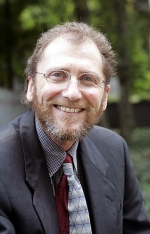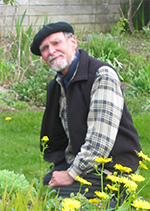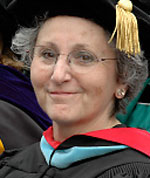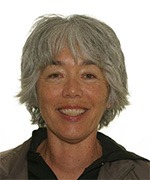Thank you to UW Tacoma staff and faculty retirees
A slightly belated salute to faculty and staff who retired in 2010-11.
Here’s a slightly belated salute to faculty and staff who retired during the past year. We contacted as many as we could reach and asked them to share highlights of their careers and their plans for retirement.
Jerry Finn

Jerry Finn is retiring after 34 years as a social work professor and researcher in North Carolina, Arizona, New Hampshire, Pennsylvania and, for the past six years, at UW Tacoma.
Finn estimates he taught thousands of students over the decades. In addition to teaching, he served as chairman of the social work department at Arizona State University-West in the 1990s.
During his career, Finn conducted research on human services and information technology, and worked with many local and national human service agencies. He was the program evaluator for RAINN (Rape, Abuse and Incest National Network), the first online rape crisis hotline.
A prolific writer, Finn served as co-editor of the Journal of Social Work Values and Ethics, and on the editorial board of several refereed journals. His writings include two edited books, more than 40 journal articles and a research textbook.
He also has been active in professional organizations, serving as treasurer of the Council on Social Work Education (CSWE) and registrar and treasurer of The Association of Baccalaureate Social Workers (BPD).
In retirement, Finn plans to play ping pong, read novels, visit his children and grandchild, evaluate programs, work with local nonprofit groups and “see what happens.”
Ann Gagner
Ann Gagner has retired for the second time in her life, after working a combined nine-and-a-half years at Washington State University in Vancouver and then at UW Tacoma. She celebrated her first retirement in 1997 when she ended 18 years as administrative manager at an international accounting firm in Seattle.
In Tacoma, Gagner worked as a program assistant in the Office of Advancement, and used to tell her grandchildren about the many advantages at UW Tacoma. Attracted by Gagner’s descriptions, three of her grandchildren transferred to UW Tacoma and graduated while she was working here. If all goes as planned, a fourth grandchild will start at the Tacoma campus this fall.
“It’s been a great experience being associated with the university,” she said.
Now that she’s retired, Gagner is spending more time with her family and is considering volunteering with hospice patients.
Linda Gilbert

Linda Gilbert is retiring after working in higher education for 26 years, the past 20 of them in UW Tacoma’s Interdisciplinary Arts and Sciences program. She began with IAS as an office assistant, became program coordinator and was promoted to fiscal specialist II.
During her years with IAS, she was pleased to see the program add multiple degrees, receive awards and grow to include more than 50 full-time faculty members. Gilbert worked closely with IAS directors on budget analyses, projections and data management. Her analysis of the IAS operations budget served as a template for the campus-wide formula for funding program operations budgets.
In 1996, Gilbert was co-recipient of UW Tacoma’s first ‘Staff of the Year’ award.
Gilbert has also been a longtime advocate for profoundly disabled children and adults, and served a three-year term on the Washington State Developmental Disabilities Advisory Council. In retirement, she plans to pursue a more activist role in supporting community inclusion: the inherent right of all persons, regardless of their disability, to enjoy the full range of life experiences which others in their community enjoy.
Michael Kalton

Michael Kalton is ending a 34-year career as a college professor. He arrived at UW Tacoma in 1990 as a full professor in Interdisciplinary Arts and Science and later served as IAS director from 1996 to 2000. A founding faculty member, Kalton also founded the Faculty Assembly and served the first two terms as its chairman.
As a world-renowned expert on Korean Neo-Confucianism, Kalton translated four books and authored numerous articles, encyclopedia entries and book chapters. He received many honors in his career, including the International T'oegye Studies Award in 1987 and UW Tacoma’s first Distinguished Teaching Award.
Kalton’s retirement plans include: writing a couple of books, participating in conferences, gardening, setting up a new woodworking workshop, reading, kayaking and traveling to China and Europe. He promises “to keep up with the Philosophy Roundtable and other interesting events at UW Tacoma.”
Bobbe Miller-Murray

Bobbe Miller-Murray is ending nearly 30 years of higher education service. She started her career overseas at the University of Maryland European Division, then worked as assistant registrar at Seattle University.
In 1998, she became UW Tacoma’s registrar, a position that also entailed serving as director of financial aid and scholarships for six years and director of admissions for three years.
Miller-Murray was instrumental in bringing the campus out of what she called “the dark ages.” Under her leadership, for instance, Tacoma took over basic functions — everything from verifying enrollment to changing grades — that the campus was not initially allowed to perform. And in a tree- and time-saving measure, she implemented the electronic application process, eliminating the need to print out student applications and distribute multiple copies.
In 2009, she received the UW Outstanding Woman Award.
Miller-Murray and her husband, Mike Murray, who’s retiring as a history professor from South Puget Sound Community College, are planning road trips with their dogs Charlie and Ciscoe. One destination: New Mexico, so Miller-Murray can finally make her Georgia O’Keefe pilgrimage.
Cathy Tashiro

Cathy Tashiro’s 38-year career incorporated a variety of nursing, consulting and management positions, as well as teaching.
As a nurse practitioner, for instance, she organized and ran a Native American clinic in Tucson, where she was the sole medical provider, with an on-call doctor. She later worked as a diversity program analyst at the University of California, Berkeley, where she helped develop the first staff diversity program and organizational assessment.
In the spring of 2000, Tashiro began teaching as an assistant professor in the UW Tacoma Nursing Program, and was promoted to associate professor in 2006. She wrote numerous journal articles and book chapters on mixed-race people and health issues. Her book, Standing on Both Feet: Voices of Older Mixed Race Americans, will be published by Paradigm Publishers this fall.
In retirement, Tashiro said she plans to do “everything I want to do. I'll probably dance more, travel, invest my energy in things that are meaningful to me, and read lots of novels. I expect more will unfold.”



